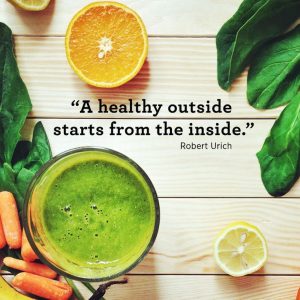《自律養生實踐家之旅334》 果斷擺脫窮忙

「事過境遷,不解自己過往的忙碌。」這句話曾出現在我早年的文字裡。嚴格說,我在意的從來不是「忙碌」,而是那些讓人疲於奔命、卻毫無價值的事情。
挫折對我而言,只是一盤小菜;失敗,也不過是一段乏善可陳的旅程。真正讓我感到頹廢的,是那些毫無意義的付出和荒廢的時光。
人生既可能是一段上坡路,也可能是一段下坡路。走了太久的上坡或下坡,我們渴望一小段平路,接著會想:下一步是迎接新的上坡,還是任由自己滑向下坡?我們時常誤判,把下坡當作上坡,把上坡看成下坡。
對我而言,上坡是心智的成長,是做出有意義的決定。我從未把收入的增加視為真正的「獲得」,因為它對人生的影響充滿變數。
可以肯定的說,如果人生一帆風順、收入可觀,我反而會放縱自己,擁抱頹廢,習慣性的走下坡路。
我曾經歷過一段滿腦子銅臭味的人生,被原生家庭的價值觀纏繞,也被社會對「成功」的定義牽著走。
那樣的忙碌讓我體會到庸俗,也讓我領悟失焦的風險。那是一種遠離健康的節奏,是一種「健康可以以後再說」的頻率。
一生中,我幾乎每個階段都沒有放下養生的思考與探索,卻不斷從生活中接收到「以後再說」的訊號,重點永遠是「先有錢,再談其他」。
如今我願意回應當年的無知與盲目:當我悟透人生沒有「以後再說」這回事時,我已不再是過去的我。
誤以為人生還長,才會抱有「以後再說」的心態;誤以為有錢能解決一切,才會不斷拖延重要的事。那種遙遙無期的感覺,正是源於對生命的錯誤解讀,讓我們對重要的人事物產生錯誤認知,使大腦的選擇背離生命的法則。
人因不滿現狀而努力超越現狀,卻忽略現狀正是由價值觀塑造的結果,於是出現了荒謬的情況:一邊不滿現狀,一邊又安於現狀。
很多人不知道,改變的契機總在「願意改變」之後才出現。
多年來,我一直在勸人改變。在我的觀察中,每個人都閃爍著渴望改變的心念,但缺乏行動的勇氣。
疾病來得迅速而無情,大多數人對它的軌跡茫然無知,只能被病痛牽制,這就像對生活不滿,卻又選擇安於現狀的無奈。
九成以上的人不知道,健康的主控權在自己手裡。於是,他們任由不懂健康本質的人掌控,不只是醫療人員,還包括所有以養生為名進行商業行銷的人。
我看過太多人陷入這種「忙碌的迷宮」,像我年輕時為了賺錢披星戴月的奔波,最後才發現自己走進了沒有出口的死胡同。
民眾忙著檢查、忙著掛名醫門診,卻不知這些都不是健康的核心。缺少與自己身體合作的深刻經歷,最終還是會把生命耗盡。
醫院,就是一種「現狀」。它帶來安全感,卻也讓人失去獨立與自主,而這兩項,正是養好身體的根本態度。
我的父親開診所,他每天坐在門診等病人上門,恢復病人的健康是醫生的職責。但病人從未意識到:真正讓身體康復的,是自己身體的努力。
當我懂得這個道理時,父親已接近退休。我沒有花太多力氣與他辯論療癒的真相,因為讓有緣人理解,比讓父親接受更有意義。
懸壺濟世,對許多醫療從業者而言,是安身立命、安養晚年的偉大職業。我尊重它的存在,但那只是「醫者的現狀」。
我誠心推薦每個人認識一位醫師,就住在你自己的身體裡。那是全世界最可靠的醫生。與它合作,你將正面定義現狀,不再窮忙,也不再耽誤身體的努力。
我與這位醫師合作將近二十年,它是進化的極品,也是引導我突破思考障礙的神器。
如今,我還在學習,身體與我持續切磋中。
(健康的外在,始於健康的內在。)
Decisively Breaking Free from the Trap of Busy Idleness
“Time passes, and I can no longer understand the busyness of my past.”
This line appeared in my early writings. Strictly speaking, what I cared about was never “being busy” itself, but rather the kind of frantic busyness spent on things with no real value.
Frustrations, to me, are just small side dishes; failures, nothing more than unremarkable journeys. What truly left me in a state of decay were the meaningless efforts and wasted years.
Life can be an uphill climb or a downhill slide. After too long on either, we yearn for a stretch of flat ground. And then comes the question: should I take on the next climb, or let myself drift into a descent? We often misjudge—mistaking a downhill for an uphill, or misreading an uphill as a descent.
To me, going uphill means growth of the mind and making decisions that matter. I have never regarded an increase in income as a genuine “gain,” because its impact on life is filled with unpredictable variables. In fact, I can say with certainty: if life had always been smooth and my income abundant, I would have indulged in idleness, embraced my own decline, and grown accustomed to walking downhill.
There was a period in my life when the smell of money filled my thoughts. I was entangled by the values inherited from my family and pulled along by society’s definition of “success.” That kind of busyness made me taste vulgarity and recognize the danger of losing focus. It was a rhythm far removed from health, a frequency that said: “Health can wait.”
Throughout my life, I have almost never stopped thinking about and exploring health, yet reality kept sending me the same message: “We’ll talk about it later—make money first.”
Today, I am willing to answer my past ignorance and blindness: once I realized that there is no such thing as “later” in life, I was no longer the person I once was.
It is the illusion of having plenty of time that breeds the mindset of “later.” It is the false belief that money can solve everything that fuels the postponement of what matters most. That endless delay stems from a flawed reading of life itself, leading to mistaken priorities—where the mind’s demands run against the laws of life.
We strive to rise above our circumstances because we are dissatisfied with them, yet we fail to see that our present situation is shaped by our own values. Thus arises an absurd reality: dissatisfied with the present, yet settling for it. Most people never realize that the opportunity to change only appears after the willingness to change.
For years, I have encouraged others to change. In my observation, nearly everyone carries a spark of desire for transformation, but what’s missing is the courage to act. Illness strikes swiftly and without mercy. Most people have no grasp of its trajectory and end up bound by it—much like being unhappy with life yet choosing to remain where they are.
Over 90% of people don’t know that the authority over their own health lies in their own hands. As a result, they surrender control to those who don’t truly understand health—not just medical professionals, but also all who market “wellness” for profit.
I have seen too many people trapped in this “maze of busyness,” just as I once worked myself to exhaustion chasing money, only to find I’d walked into a dead-end. People busy themselves with medical tests, with visiting top doctors—yet these are not the core of health. Without the deep experience of cooperating with one’s own body, life itself will eventually be spent.
Hospitals are, to me, a “status quo.” They offer a sense of security, but at the cost of independence and self-reliance—the two most fundamental attitudes for true health.
My father ran a clinic. Every day he would sit in his consultation room, waiting for patients to arrive. Restoring a patient’s health was his duty. But patients never realized that the real work of recovery is always carried out by the patient’s own body.
By the time I understood this truth, my father was nearing retirement. I did not try hard to persuade him of the deeper reality of healing, because it meant more to me that those ready to hear it could understand.
Practicing medicine is, for many healthcare workers, a noble profession—one that sustains their livelihood and brings dignity in their later years. I respect its place in society. But it is still a “status quo”—the busy reality of doctors.
I sincerely recommend that everyone get to know the most trustworthy doctor in the world—the one who lives inside your own body. Once you begin working with this doctor, you can redefine your present state, free yourself from meaningless busyness, and stop undermining your body’s efforts.
I have worked with this doctor for nearly twenty years. It is an evolutionary masterpiece, a guide that has helped me break through my mental barriers. Even now, I am still learning—still in constant dialogue with my body.


